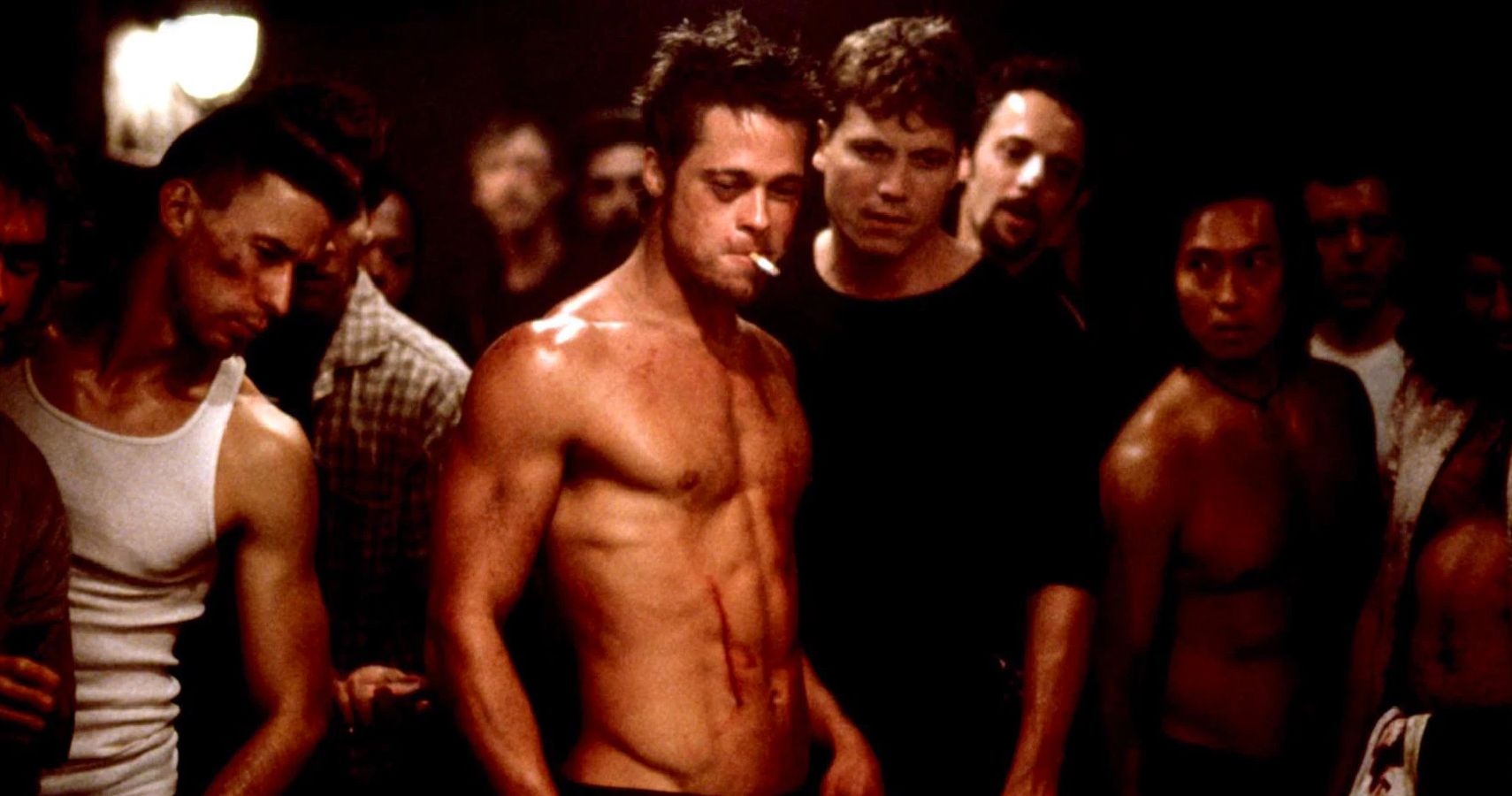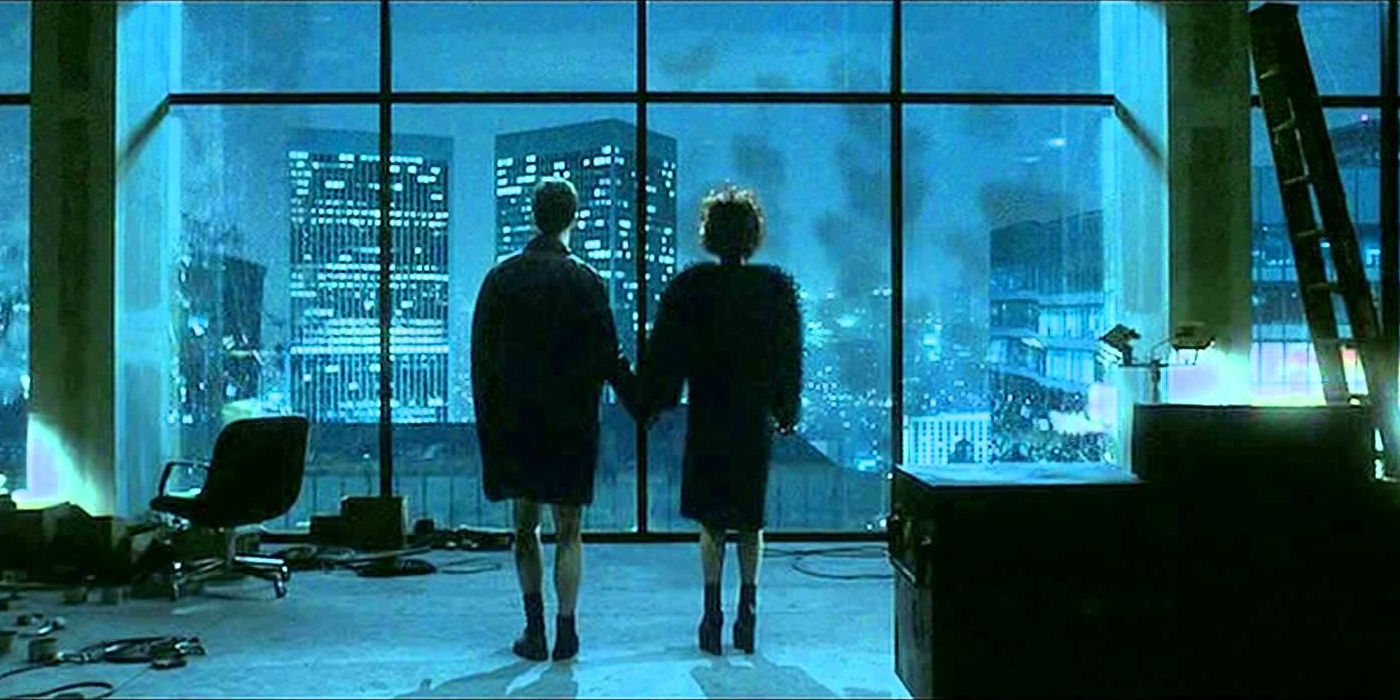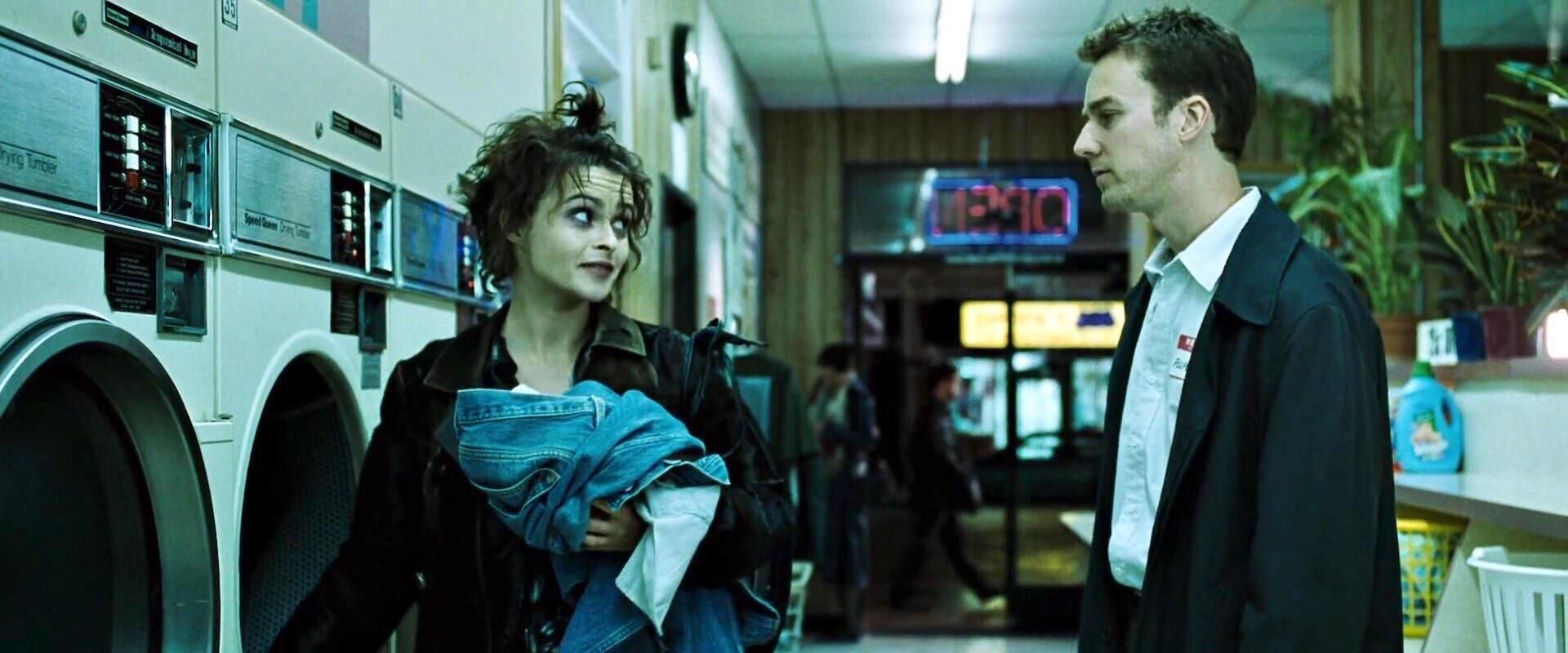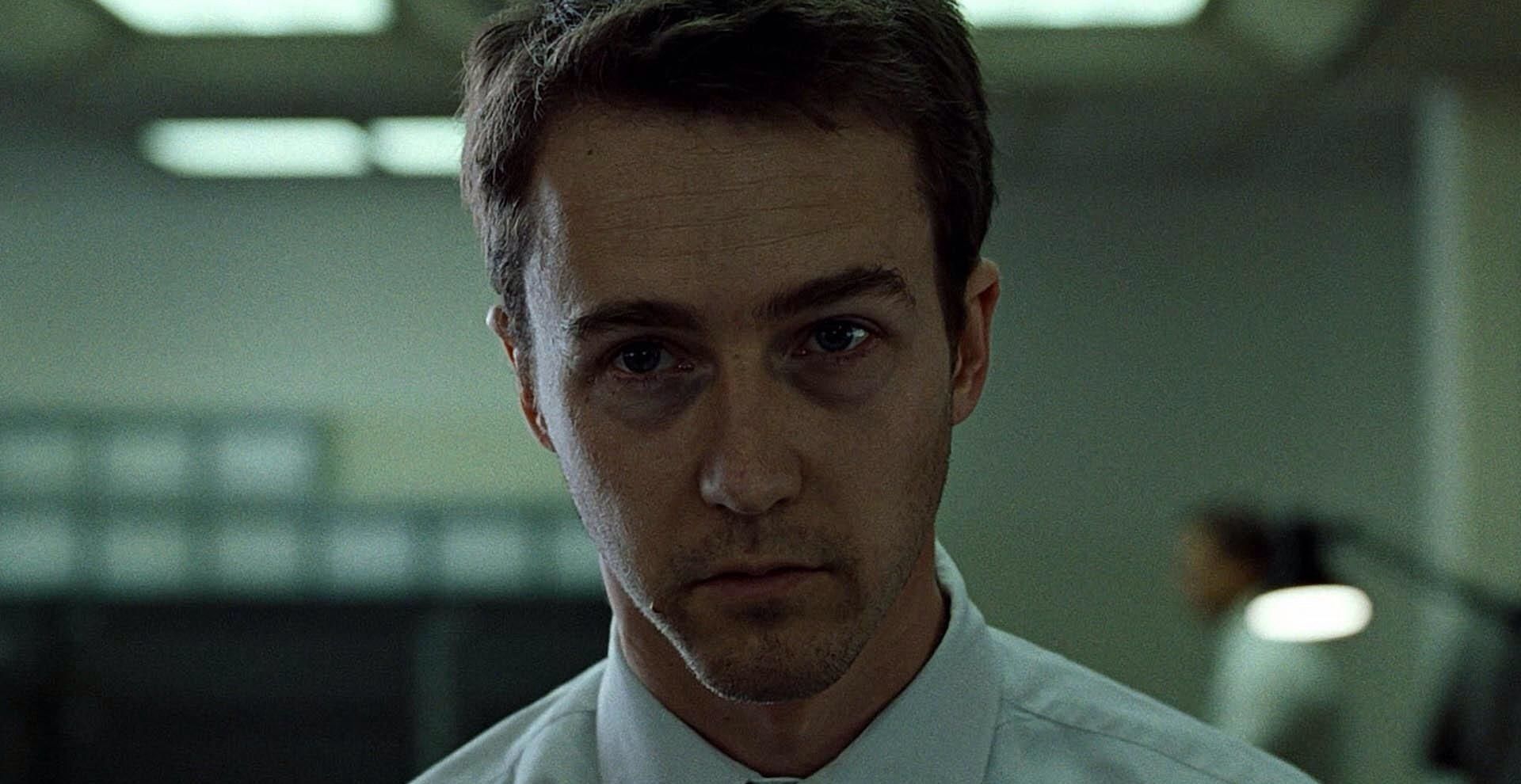Fresh off its 20th anniversary, Fight Club remains a cult classic whose popularity continues to grow. Based off the brilliant novel by Chuck Palahniuk, the film is a bold work of art, and one that deserves multiple viewings. It stands on its own, but has also influenced popular culture from classic references to inspiring critically acclaimed television shows like Mr. Robot.
That being said, the world has obviously changed a great deal since the film released in 1999. As such, in some aspects the film has aged poorly. This does not cheapen the best elements of the film, yet it warrants a closer look at the elements audiences may have overlooked when watching the film 10 or 20 years ago.
Take a trip into the basement of Lou's Tavern as we explore 5 Reasons Fight Club Has Aged Poorly (And 5 Reasons It's Timeless).
Timeless: "The first rule of Fight club is . . ."
"The first rule of Fight Club is you do not talk about Fight Club." This line is arguably the most memorable from the film and certainly the most referenced in popular culture. From articles published by the Onion, to lines in Family Guy, NCIS, Scrubs, and much more, the first rule of Fight Club is frequently referenced and sometimes revised to fit different contexts. Even people who haven't seen the movie are familiar with the line and can quote it because of how it's permeated popular culture.
Aged Poorly: Misogyny
Fight Club is largely meant to be a satire of fragile masculinity and the lengths men will go to reclaim it. Even with the satirical perspective in mind, there's still too much misogyny in the film. Tyler Durden says things like "We're a generation of men raised by women" with utter contempt and generally treats Marla Singer as little more than a sexual object. Also, when the film examines the oppressive nature of capitalist culture, it only takes into account how men are oppressed by this system and entirely ignores how many women suffer under this structure as well.
Timeless: The Tyler Durden Plot Twist
The reveal of the Narrator and Tyler Durden being dissociated personalities who share the same body remains one of the greatest plot twists in cinematic history. It's not just about the shock value, but how the film constantly drops hints without ever making the truth too obvious. Part of the reason Fight Club is such a rewatchable film is that fans always find new clues that hints at the ultimate truth. The whole concept is a brilliant way of exploring the Narrator's inner conflicts and struggles, and of how he wants others to perceive him versus the real version of himself.
Aged Poorly: Toxic And Abusive Relationships
The main issue with the toxic relationships in Fight Club is that they're glorified and ultimately justified. Marla experiences extensive emotional abuse at the hands of the Narrator/Tyler Durden. The same holds true for the Narrator's relationship with Tyler/himself. That the movie ends on a seemingly positive note with the Narrator and Marla together, holding hands, and now better versions of themselves suggests that the toxicity and abuse was all worth it. Such a message is deeply problematic, especially for those who take Fight Club too literally.
Timeless: Iconic Acting Performances
Edward Norton, Brad Pitt, and Helena Bonham Carter have all gone on to have prolific acting careers. Despite their many successes, though, Fight Club remains among their most iconic and impressive performances. Their on-screen chemistry together is palpable and in every scene their performances feel authentic. Their stellar acting is largely what made this bizarre film work in the first place. Anyone who's seen Fight Club will forever associate these actors with these roles.
Aged Poorly: Self-Harm
Tyler Durden physically harms the Narrator several times throughout the movie, which means the Narrator is harming himself. Chemically burning his hand and punching himself are depicted as liberating acts in which he casts off the yoke of society and is able to focus on the truths that really matter. It's dangerous and problematic to suggest that self-harm is a road to enlightenment, particularly considering the self-harm epidemic among some teenage populations.
Timeless: Dark Humor
Fight Club thrives in the moments where it features dark humor. The Narrator and Marla Singer debating over which support groups they'll each attend is one such example, as is the montage of Fight Club members starting and intentionally losing fights with random people. Though dark, much of the banter between Marla, Tyler, and the Narrator is hilarious. This humor resonates with fans no matter how many times they've seen the movie, and it's an essential reminder of the satirical perspective.
Aged Poorly: Tyler's Side Jobs
Tyler Durden worked side jobs as a waiter and film projectionist. That might sound innocent enough, but the real reasons he works those jobs are actually rather disturbing. As a waiter he urinated into the soup and as a film projectionist he spliced pornography into children's movies. At one time, these are things audiences found amusing and another example of Tyler "sticking it to the man." Showing unsuspecting children and families such explicit material and contaminating served food in such a foul way is wrong on many levels and no longer seen as an amusing act of revolution, though.
Timeless: Existential And Nihilist Themes
At some point or another, many people question the meaning of life and whether anything actually matters. Many stories attempt to tackle such existential and nihilist questions, but rarely with success. Through its dark, satirical humor and how the Narrator's inner turmoil externally manifests, Fight Club offers an accessible and entertaining look into thought-provoking questions that surround existentialist and nihilist philosophies. For those who struggled to relate to or understand these philosophies when posed by classic writers like Albert Camus and Jean-Paul Sartre, Fight Club might be a better place to start.
Aged Poorly: The Performance Artist Headline
As Project Mayhem expands, Tyler Durden collects newspaper clippings related to their revolution against society. One of these headlines reads "Performance Artist 'Molested'". The film never goes into the details of this event, but it should go without saying that any sort of molestation is always unacceptable and never justifiable. Instead of just being men struggling to find their way and fed up with a materialistic and capitalist society, this act paints the members of Project Mayhem in a far more disturbing and predatory light. It's also unsettling to consider that Tyler is proud of this, almost as if it's a badge of honor for Project Mayhem.










